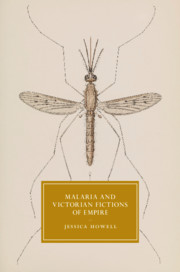
- Cited by 13
-
Cited byCrossref Citations
This Book has been cited by the following publications. This list is generated based on data provided by Crossref.
King, Amy M. 2019. The Divine in the Commonplace.
2019. The Commodification of Identity in Victorian Narrative. p. 280.
Johns-Putra, Adeline 2019. Climate and Literature.
2019. The Divine in the Commonplace. p. 298.
Sussman, Matthew 2021. Stylistic Virtue and Victorian Fiction.
2021. Decadent Ecology in British Literature and Art, 1860–1910. p. 261.
2021. Convalescence in the Nineteenth-Century Novel. p. 228.
2021. Stylistic Virtue and Victorian Fiction. p. 260.
2022. Visual Culture and Arctic Voyages. p. 269.
Howell, Jessica 2022. COVID-19 narratives and layered temporality. Medical Humanities, Vol. 48, Issue. 2, p. 211.
2022. Music and the Queer Body in English Literature at the Fin de Siècle. p. 278.
2024. Acoustics in Nineteenth-Century Literature and Science. p. 294.
Cliff, Neil 2025. A Zoocritical Reading of Mungo Park’s Travels in the Interior Districts of Africa (1799). Humanities, Vol. 14, Issue. 2, p. 22.
- Publisher:
- Cambridge University Press
- Online publication date:
- December 2018
- Print publication year:
- 2018
- Online ISBN:
- 9781108693226


